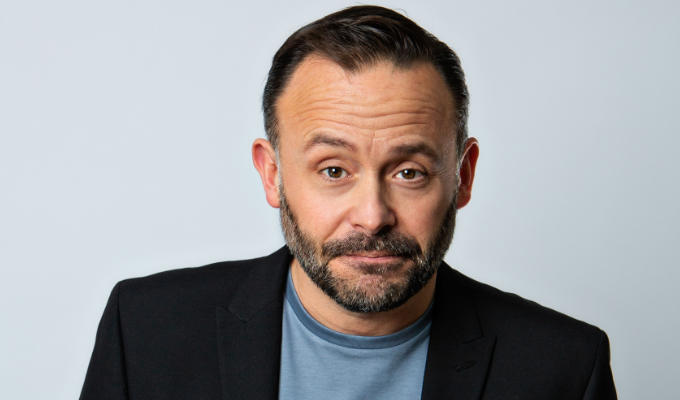Get over yourselves!
Patrick Kavanagh on the arrogance of new acts thinking they're better than the audience
‘Five minutes just isn't long enough!’ moans Padraig Ryan in a recent Correspondents piece; while ‘surrealist/anti-comics can’t get beyond open-mic spots’ whines Darren Maskell.
And yet, I find it difficult to believe that there are talented performers handicapped by either too short a slot, or too surreal a style.
In most pitching scenarios if you don’t impress within the first 30 seconds, you’ve missed your opportunity. So, to argue that a good up and coming comedian needs longer than five minutes to impact on an audience seems naive. If you can’t land knockout punch lines within five minutes I would argue that you're not a good comedian – and that maybe you're not a comedian at all.
The attitude that ‘if I had more time, I’d kill’ doesn't really hold water when one remembers that the audience has chosen to attend a comedy club in preference to an array of vastly more sophisticated entertainment options - many of which are free. Further, if young comics designed their set mindful of the fact that they are competing (however indirectly) with film, television, the internet and radio they might be less inclined to whine about time constraints.
Great writing is about economy - comedy writing even more so. Consider that Ernest Hemingway managed to tell a story in six words (‘For sale: baby shoes, never worn’) and five minutes starts to look flabby. The five minute slot acts as an evolutionary force, sieving off those who can’t – or won’t – conform to its rigours.
What then of the ‘hacks’ who riff on the same old topics, making the same trite observations when they could be testing the limits of their art. I don’t go along with Maskell's argument that he somehow deserves greater success.
Imagining, like Ryan, that if conditions were subtly different, a more difficult comedian would do so much the better seems foolhardy at best - delusional at worst. He wants the success that comes with having a more accessible style but refuses to make the necessary concessions, if indeed he is even capable of such changes. If after a year and a half of performing stand-up you haven't managed to get beyond the (unpaid?) five-minute open-mic slot it might be time to offer your autograph to social welfare.
On the other hand, open spots who blame everyone, from audience to fellow performers, for their own lack of progression reeks of arrogance. Great performers tend to blame themselves when things don’t go well, and work tirelessly to improve.
Surreality is too often confused with nonsense and elicits little more than nervous titters from audiences. The great surrealists manage to take you with them, tangenting off a recognisable – yes, ‘hack’, even – theme on to some more imaginative topic. However, the brief should always be ‘is this funny?’ Like it or not comedy is objective: if they’re not laughing, you're not funny - by the same token, if they’re not booking you’re not getting paid.
There is also a subjective element to comedy – some will find Michael McIntyre funny, while others might say they see through the constant head wobbles, the endless silly walks, the poodle-like inflections, the infectious/affected half-chuckle and the utterly generic material. That said, Lenny Bruce would never have filled Wembley.
You can't bitch about the hacks appealing to the lowest common denominator and envy their success at the same time. Neither is it the case that only attracting ten people makes you some kind of genius!
One should always keep in mind the possibility that ‘maybe I’m just not very good at this’.
Published: 16 Feb 2010






